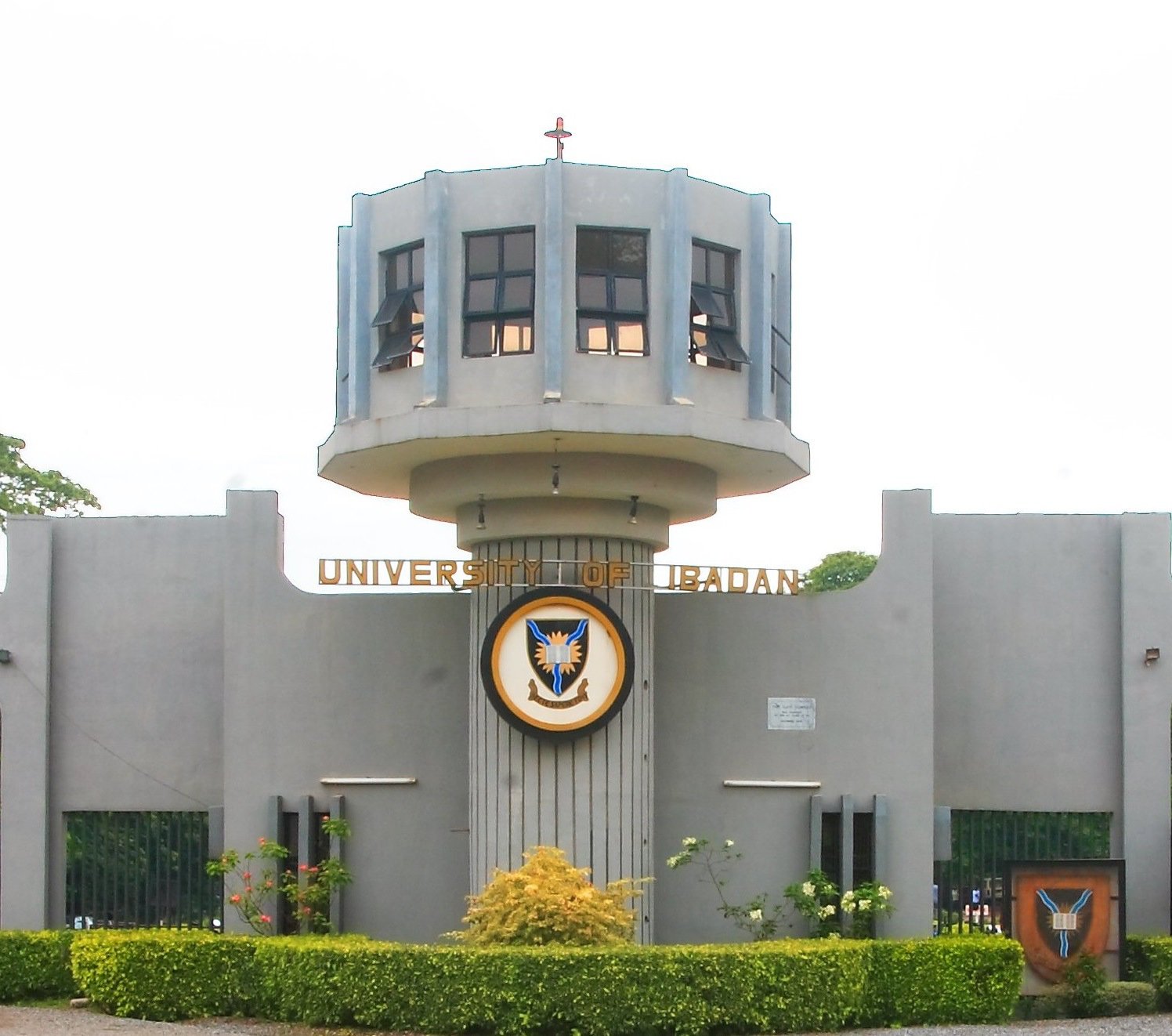Articles
-
 The Big Brother Naija Season 10 house is heating up as tensions rise between two housemates, Imisi and Head of House (HOH) Thelma. What began as a disagreement over alcohol during the pool party quickly escalated into a heated confrontation that nearly turned physical. How the Drama Started According to reports from fellow housemates, HOH Thelma allegedly withheld some of the allocated drinks for personal reasons. Housemates Imisi and Isabella had each taken two cans of alcohol early on, but The
The Big Brother Naija Season 10 house is heating up as tensions rise between two housemates, Imisi and Head of House (HOH) Thelma. What began as a disagreement over alcohol during the pool party quickly escalated into a heated confrontation that nearly turned physical. How the Drama Started According to reports from fellow housemates, HOH Thelma allegedly withheld some of the allocated drinks for personal reasons. Housemates Imisi and Isabella had each taken two cans of alcohol early on, but The- 0 comments
- 13 views
-
 Resident Doctors Begin Nationwide Strike Over Unpaid Allowances and Salary Arrears The National Association of Resident Doctors (NARD) has declared a nationwide strike, ordering its members to withdraw services from all public hospitals across Nigeria. The industrial action began on Friday, September 13, 2025, after the expiration of a 24-hour ultimatum issued to the federal government. Why Resident Doctors Are on Strike According to NARD President, Dr. Tope Osundare, the strike decision followe
Resident Doctors Begin Nationwide Strike Over Unpaid Allowances and Salary Arrears The National Association of Resident Doctors (NARD) has declared a nationwide strike, ordering its members to withdraw services from all public hospitals across Nigeria. The industrial action began on Friday, September 13, 2025, after the expiration of a 24-hour ultimatum issued to the federal government. Why Resident Doctors Are on Strike According to NARD President, Dr. Tope Osundare, the strike decision followe- 0 comments
- 12 views
-
 Bauchi State Government Sacks Teacher Over Sexual Harassment Allegations The Bauchi State government has dismissed a senior teacher, Emos Joshua, over allegations of sexual harassment. Joshua, who served as a Principal Assistant Education Officer at Government College, Azare, was relieved of his duties following a decision by the Civil Service Commission (CSC). Also, don’t miss our related guides: 👉 [How to Apply for a Canada Visa from Nigeria 2025] 👉 [Best Cheap Smartphones in Nigeria 2025 –
Bauchi State Government Sacks Teacher Over Sexual Harassment Allegations The Bauchi State government has dismissed a senior teacher, Emos Joshua, over allegations of sexual harassment. Joshua, who served as a Principal Assistant Education Officer at Government College, Azare, was relieved of his duties following a decision by the Civil Service Commission (CSC). Also, don’t miss our related guides: 👉 [How to Apply for a Canada Visa from Nigeria 2025] 👉 [Best Cheap Smartphones in Nigeria 2025 –- 0 comments
- 21 views
-
 Studying in the United Kingdom has always been a dream for many Nigerian students, but the cost of tuition and living expenses often makes it seem out of reach. Fortunately, scholarships make it possible to study in the UK without putting an unbearable financial burden on yourself or your family. In this comprehensive step-by-step guide for 2025, we’ll walk you through everything you need to know about applying for UK scholarships, increasing your chances of success, and settling down once you a
Studying in the United Kingdom has always been a dream for many Nigerian students, but the cost of tuition and living expenses often makes it seem out of reach. Fortunately, scholarships make it possible to study in the UK without putting an unbearable financial burden on yourself or your family. In this comprehensive step-by-step guide for 2025, we’ll walk you through everything you need to know about applying for UK scholarships, increasing your chances of success, and settling down once you a- 0 comments
- 64 views
-
 In 2025, smartphones have become essential tools for Nigerian students — not just for calls and chatting, but also for online classes, research, banking, part-time work, and staying connected with family abroad. However, studying or preparing to study overseas comes with plenty of expenses like tuition fees, visa costs, and living expenses, so buying an expensive smartphone may not be the smartest move. That’s why we’ve created this comprehensive guide to the best cheap smartphones in Nigeria in
In 2025, smartphones have become essential tools for Nigerian students — not just for calls and chatting, but also for online classes, research, banking, part-time work, and staying connected with family abroad. However, studying or preparing to study overseas comes with plenty of expenses like tuition fees, visa costs, and living expenses, so buying an expensive smartphone may not be the smartest move. That’s why we’ve created this comprehensive guide to the best cheap smartphones in Nigeria in- 0 comments
- 61 views
-
 For many Nigerians, Canada remains one of the top choices for studying, working, and even long-term settlement. But before you can start your dream journey, you’ll need to successfully apply for a Canada Study Visa (Study Permit) or the appropriate visa for your purpose. In this 2025 guide, we’ll walk through the full Canada visa process for Nigerians – from eligibility requirements to biometrics, interview preparation, and final approval. 👉 If you’re still deciding between Canada and the UK, ch
For many Nigerians, Canada remains one of the top choices for studying, working, and even long-term settlement. But before you can start your dream journey, you’ll need to successfully apply for a Canada Study Visa (Study Permit) or the appropriate visa for your purpose. In this 2025 guide, we’ll walk through the full Canada visa process for Nigerians – from eligibility requirements to biometrics, interview preparation, and final approval. 👉 If you’re still deciding between Canada and the UK, ch- 0 comments
- 28 views
-
 Every year, thousands of Nigerian students dream of studying abroad to secure world-class education, international exposure, and better career opportunities. The two most popular destinations remain Canada and the United Kingdom (UK). Both countries offer high-quality universities, globally recognized degrees, and exciting student experiences. But which is the better choice in 2025 for Nigerians? In this comprehensive guide, we’ll compare Canada vs UK in terms of tuition fees, visa requirements,
Every year, thousands of Nigerian students dream of studying abroad to secure world-class education, international exposure, and better career opportunities. The two most popular destinations remain Canada and the United Kingdom (UK). Both countries offer high-quality universities, globally recognized degrees, and exciting student experiences. But which is the better choice in 2025 for Nigerians? In this comprehensive guide, we’ll compare Canada vs UK in terms of tuition fees, visa requirements,- 0 comments
- 65 views
-
 Introduction – Why University Choice Matters in 2025 For millions of Nigerian students, gaining admission into a university is not just an academic milestone but also a life-changing opportunity. The institution you attend can shape your career, your professional network, and your chances of studying or working abroad. With over 200 universities in Nigeria—federal, state, and private—the decision can be overwhelming. Parents often ask: Which universities provide the best quality at affordable fe
Introduction – Why University Choice Matters in 2025 For millions of Nigerian students, gaining admission into a university is not just an academic milestone but also a life-changing opportunity. The institution you attend can shape your career, your professional network, and your chances of studying or working abroad. With over 200 universities in Nigeria—federal, state, and private—the decision can be overwhelming. Parents often ask: Which universities provide the best quality at affordable fe- 0 comments
- 28 views
-
 Ashley Young, a legend at Manchester United, and Tyler Young, his son, are set to become the first father-son team in Championship history. When Tyler and his teammates faced Premier League side Everton in the FA Cup last season, Peterborough manager Darren Ferguson prevented the two from meeting for the first time. They would have become the first father-son team to compete against one another in the FA Cup's 154-year history if Tyler took the field while his father was playing. But now, the mi
Ashley Young, a legend at Manchester United, and Tyler Young, his son, are set to become the first father-son team in Championship history. When Tyler and his teammates faced Premier League side Everton in the FA Cup last season, Peterborough manager Darren Ferguson prevented the two from meeting for the first time. They would have become the first father-son team to compete against one another in the FA Cup's 154-year history if Tyler took the field while his father was playing. But now, the mi- 0 comments
- 65 views
-
 Women are warned by the police not to pay for transportation without going on dates. The Rivers State Police Command has cautioned women against the practice of collecting transport fare from men for dates and failing to appear, describing the act as a criminal offence that could lead to prosecution. In a video that went viral on X on Wednesday, the Police Public Relations Officer, SP Grace Iringe-Koko, issued the warning. She explained that taking money under such pretence falls within the offe
Women are warned by the police not to pay for transportation without going on dates. The Rivers State Police Command has cautioned women against the practice of collecting transport fare from men for dates and failing to appear, describing the act as a criminal offence that could lead to prosecution. In a video that went viral on X on Wednesday, the Police Public Relations Officer, SP Grace Iringe-Koko, issued the warning. She explained that taking money under such pretence falls within the offe- 0 comments
- 80 views
Forums
-
General Section
-
Our country Nigeria is the giant of Africa!
-
Our country Nigeria is the giant of Africa!
-
Our country Nigeria is the giant of Africa!
-
Our country Nigeria is the giant of Africa!
-
Our country Nigeria is the giant of Africa!
-
-
Webmaster Tools
-
Any files, theme or anything about wordpress goes here
-
This is the official forum for anything php or scripts related
-
-
Community
-

